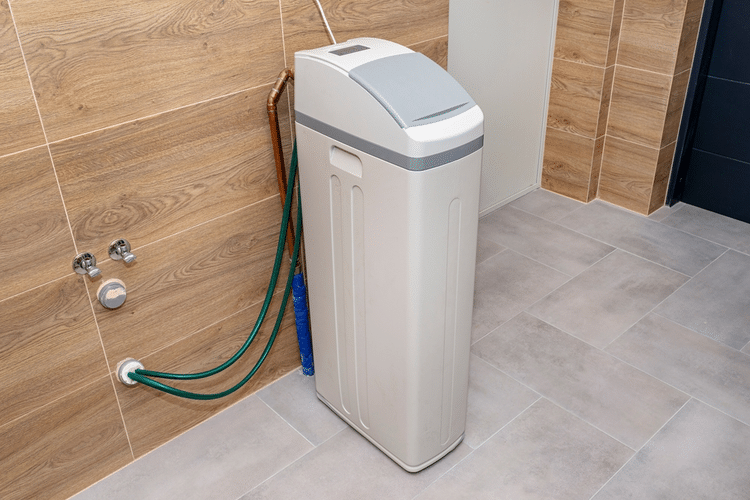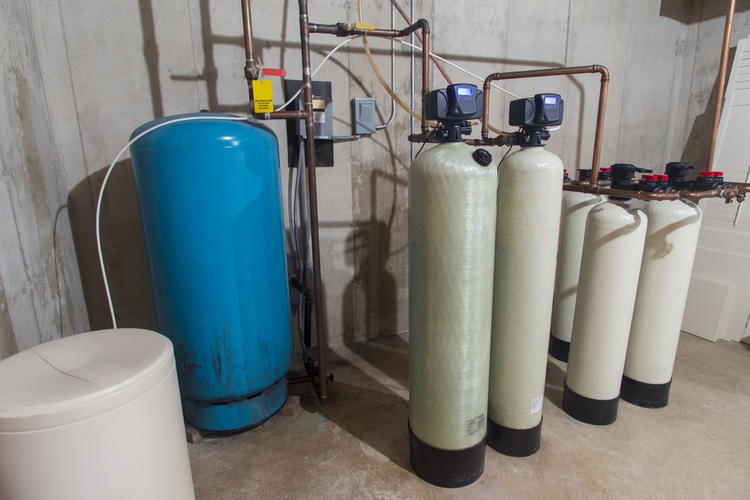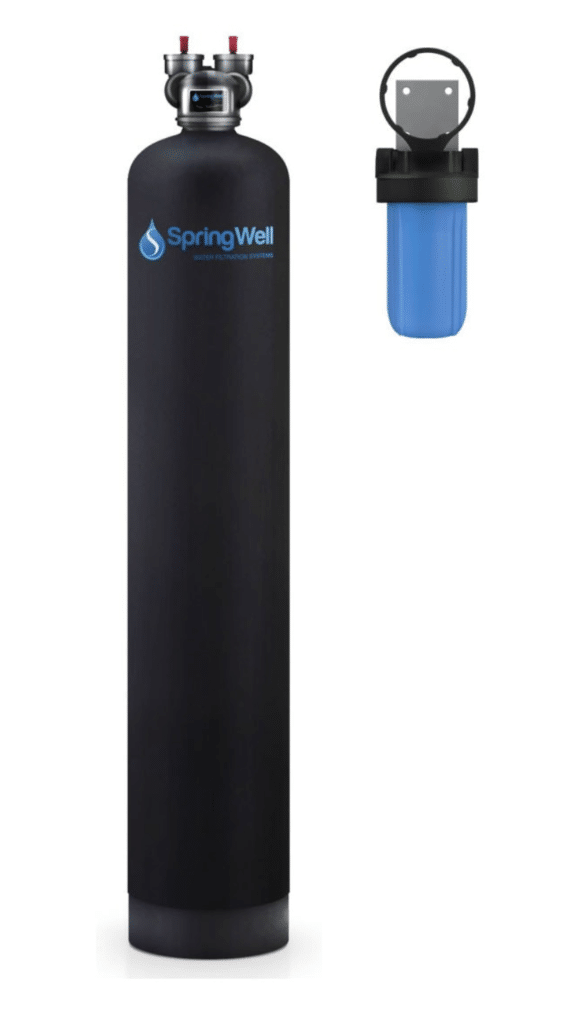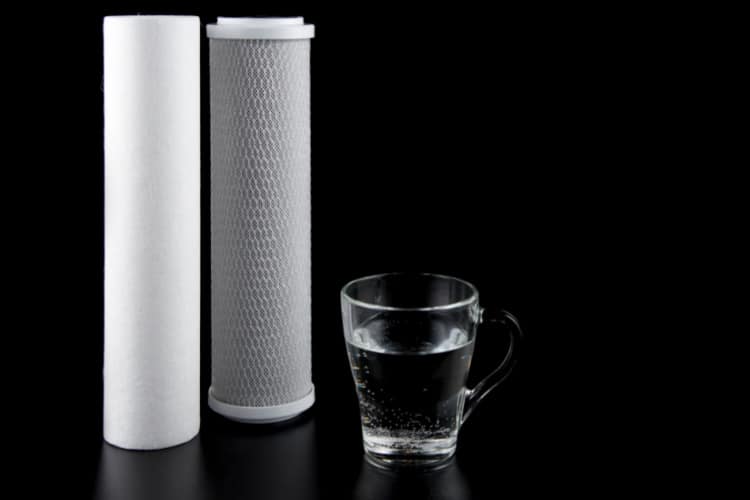The data is in—a whopping 85% of U.S. water sources provide hard water to homes across the States.
This means water softeners are basically the norm. But does it mean you don’t have to worry about chlorine as well? That’s what we’re about to find out.

Chlorine Prevalence in Water
Most of United States’ water sources rely on chlorine to disinfect the water from hazardous contaminants that are dangerous to our health and wellbeing.
This doesn’t just include tap water either—the bottled water brands that you’ve grown to love also use chlorine to keep their product clear of bacteria.
A lot of people think that because they can’t see, taste, or smell the chlorine, that it isn’t there. Unfortunately, this is not the case.
At 4 milligrams per liter, the concentration of chlorine is so low that it’s imperceptible. However, those are also the levels that are considered safe for human consumption according to the Environmental Protection Agency of the U.S.
If there is a higher concentration, you will immediately notice the “community pool” smell and aroma in your water. If that is the case, then you should definitely look into bringing the chlorine levels down.
Is Water Chlorination Safe?
Let’s not forget that chlorine was used as a chemical weapon during WWI. So, the studies that link it to bladder and rectum cancers should be kept in mind. That said, there are also studies that have found no link between chlorine and cancer.
Should You Remove Chlorine from Water?
The answer to this question is mainly one of personal choice. There are no proven health dangers to moderate chlorine intake. Nevertheless, people remove chlorine entirely from their drinking water just to be on the side of caution.
Many install a dedicated filtration system that keeps chlorine at bay. The filtration process removes chlorine, but is there another way to go about it? Are water softeners a good investment when it comes to chlorine removal? Let’s keep looking.
Can Water Softeners Remove Chlorine?
No, water softeners do not remove chlorine. They only remove hard water minerals like calcium and magnesium. The best way to remove chlorine is to use a water filter.
Water softeners usually make use of sodium-inundated resin beads. So, when water passes through the tank with the resin beads, the calcium and manganese are filtered via a chemical reaction with the beads.
If you worry about chlorine and its unwanted effects, then you should definitely consider investing in a water filter system rather than a softener. Preferably, get a water filter that uses reverse osmosis technology.
Reverse osmosis can remove large amounts of chlorine in water. The recommended RO filter for chlorine is Waterdrop G3P800 or the AquaTRU countertop filter with RO technology.
What to Use For Chlorine Instead of Water Softeners
Here are some of the more appropriate filtration technology (water filters) for chlorine. We talked extensively about them in our how to remove chlorine from water article:
All-In-One Softeners and Filters
Luckily there are systems that feature both. Nowadays, you are able to purchase a water filter system that filters the water and a water softener for hard water.

After getting your water through more than five filtration stages, these all-in-one systems soften the water before they pump it out for consumption purposes.
We recommend the Springwell CSS1 If you’re looking to get a filter & softener combo.
Whole-House Filters

The best way to go about all-inclusive RO systems is to invest in a whole house filter and purify every drop of water that passes through your household.
The important thing here is to ask yourself if you want to completely rid yourself of chlorine or just bring it down a notch. If you want to completely remove it from your household, then you shouldn’t bother with different types of water softeners and go straight for an all-in-one or RO type of systems.
Catalytic Filtration
One of the most popular or sought-after methods of chlorine removal is the catalytic filtration method, which softens the water by removing much of its dissolved calcium, chlorine, magnesium, and iron.
The water softener is able to soften the water by swapping hard elements for sodium-based ones. This method is great for far more than just drinking water. It delivers a silky smooth skin and hair texture just after a couple of uses.
Granular Activated Carbon (GAC) Filter
Granular activated carbon (GAC) is another popular choice when it comes to water softening. GAC is a resin-based softener that mixes chlorine with the resin.

Water softeners that are based on resin filtration have a long shelf life, and they can last anywhere between 8 and 10 years.
Because GAC mixes with the resin, if you ever have the need or desire to remove the GAC from your water supply, you will have to remove both the GAC and the resin at the same time.
In Closing
Water softeners can remove small amounts of chlorine in water, but they’re not the most ideal solution. Your best bet is to purchase a reverse osmosis system like the WaterDrop G3P800 or an All-in-one Filter & Softener system like the Springwell CSS1 Combo.